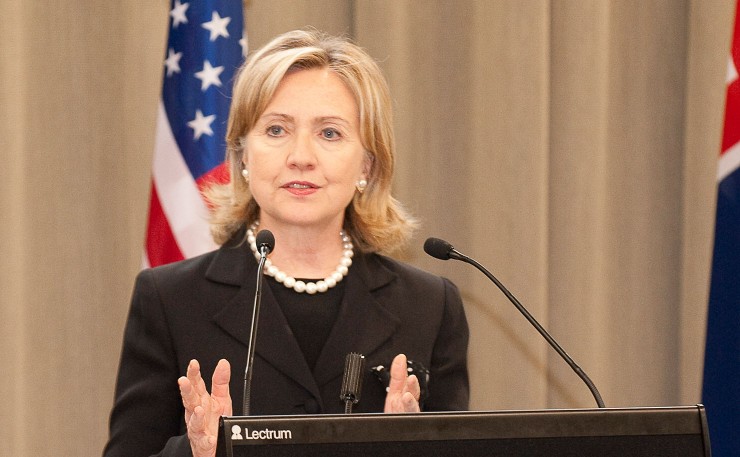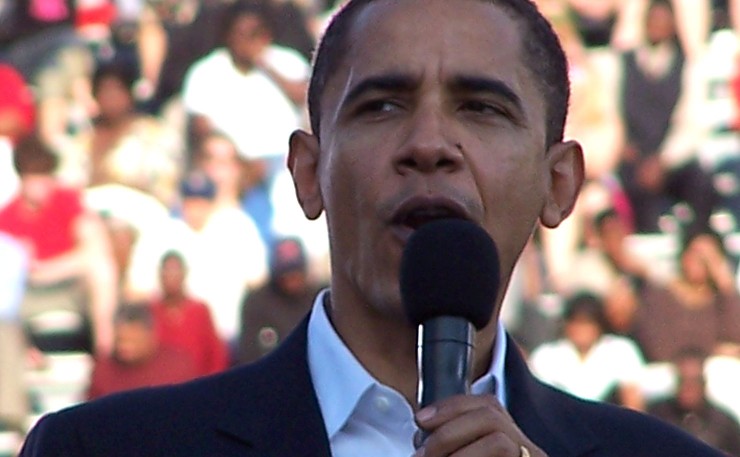If you think things are bad now, a new American president hasn’t even been elected yet. And that’s where Dr Richard Hil thinks things might really start going downhill, no matter who wins.
Over the past few days I’ve been glued to Rupert Murdoch’s Fox News, but please don’t tell anyone.
I know what you’re thinking: why do this to yourself? Well, you’ll be aware of the maxim: keep your friends close and enemies closer? Right now, it feels that way, especially when it comes to the US election. I need to know how the inexplicable and unforgivable are being explained away by the right wing anything-goes fraternity.
In this post ethical-rational-decent-relevant-respectful US presidential campaign, where everything has been turned on its head; where in true Orwellian fashion psychopathy becomes virtue, policy an irrelevance, and the moral vaporised; it’s hard to hang on to one’s senses.
Trump = symptom, Clinton = disease; the only thing that makes sense is that little does. Actually, that’s not true – it all makes perfect sense. Why should we be surprised by what transpires in whacko celebrity TV-land?

John Katakis’s depiction of the USA as the United States of Salesmen is about right – it means that everything in the land of the free has been commodified, including the election of a US President.
At least Obama’s ‘Yes we can’ (no-he-didn’t!) campaign had a hint of the New Deal about it. This time around it feels a lot more elemental: a throwback to some very dark atavistic instincts. It doesn’t seem to matter to a lot of people that one of our presidential candidates is a misogynist, racist, disablist, or that the other contender speaks with a forked tongue – actually, they both share that habit.
The roots of this grotesque charade run deep. Still, the election matters, and it’s not simply because of the nuanced differences between two unpopular candidates. Both are likely to take us down the road of hyper militarism, corporate greed and further disillusionment with liberal democratic institutions.
Neither seems capable of uniting the nation; neither can fix the mess America is in – the budget deficit, stagnant wages, entrenched inequality, urban decay; black deaths, and, oh yes, that small matter of climate change.
Perhaps Trump, as Bob Carr has suggested, is the harbinger of worse to come – a conga-line of ultra-right populist demagogues who’ll make Trump look like a shrinking violet.
GOP is probably dead, thanks to its inability to quell the excesses of the Tea Party of which Donald “pussy” Trump is the logical extension (no pun intended). We all know that the presidential horror show is farce and that power rests with corporate lobbyists and financial institutions.
Trump wants corporate tax cuts, and Clinton believes that the banks are our best financial advisers (yeah, right). She’ll also likely continue Obama’s military build-up (including record weapons sales) and Trump is set to bomb the sh*t out of ISIS, or anyone else for that matter.

To some extent, the tawdriness of the presidential race reflects the dying embers of empire, the paranoia that results from growing uncertainty in a rapidly changing world. Trump’s supporters believe in him not simply because he’ll deliver jobs – although there’s no serious plan here – but mainly because he’ll vanquish their enemies: illegal migrants, Muslims, trade deals, ISIS, political correctness, corrupt politicians – whatever.
When Trump stared into the camera at the Republican National Convention and said “I’m your voice”, he tapped into the collective soul of the angry and dispossessed. No matter that he talks about groping women and insults veterans. No matter either that his back-of-the envelope policies – if that’s what they are – are a return to the buffoonery of the Bush era which delivered, among other things, a catastrophic war in the Middle East, the GFC and, hey presto, a budget deficit.
At least Bush could appeal to God-given exceptionalism grounded in the belief that the US is, and always will be, the world’s preeminent power. It’s what the Project for an American Century was all about.
Trump’s version of this is a form of radical authoritarian nationalism that knows no bounds. So, if we’re going to dump on Trump it’s important to see him as a symptom of diminished US economic and military power, as well as a portent of what looks like an unfolding dystopian future.
There’s already talk among Trump’s followers of not accepting the election result, of taking things into their own hands, and other hints of reactive vigilantism. These threats have to be taken seriously.
On a final note: Trump’s brand of politics is not confined to America. This week an Australian poll showed that our very own version of Trumpism – Pauline Hanson’s One Nation – has increased its support fourfold since the last election.
Much of this can be attributed to sentiments that are abroad in Europe – antipathy towards migrants and refugees, along with a growing sense of frustration over jobs and growth.
If economist Paul Mason is right, these feelings will only harden given that economic stagnation and austerity policies are now part of the landscape.
Donate To New Matilda
New Matilda is a small, independent media outlet. We survive through reader contributions, and never losing a lawsuit. If you got something from this article, giving something back helps us to continue speaking truth to power. Every little bit counts.





